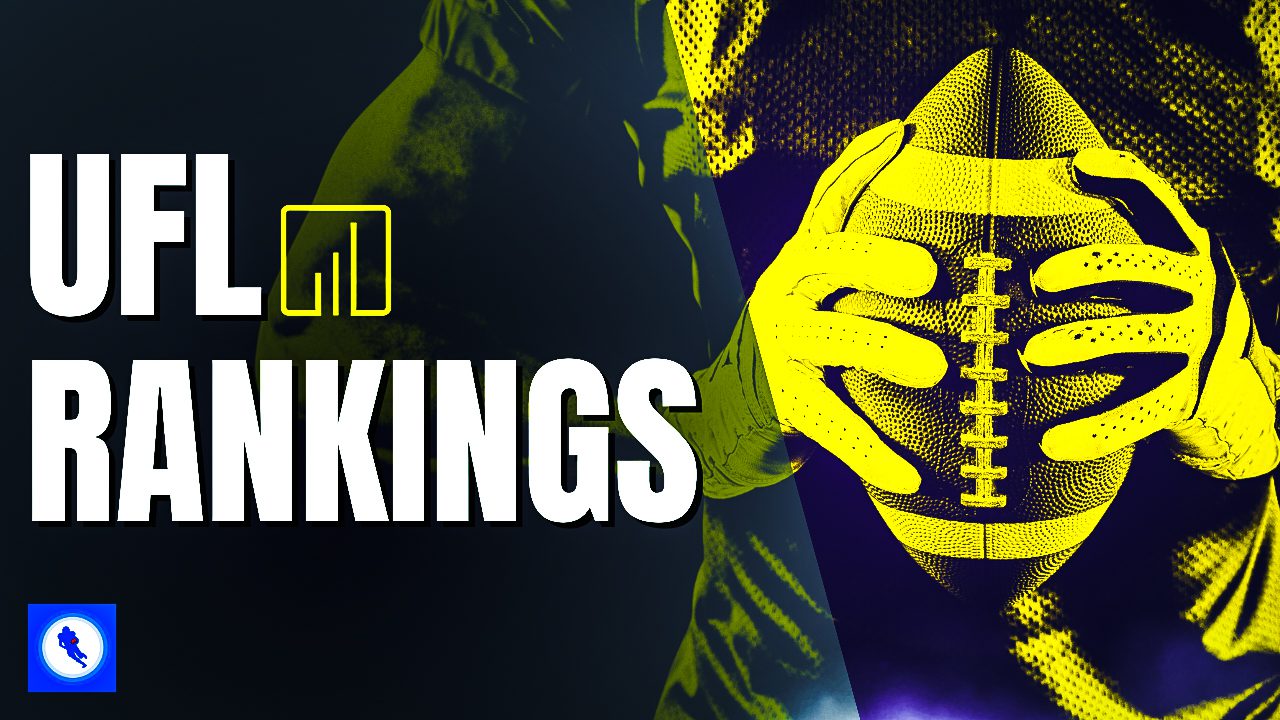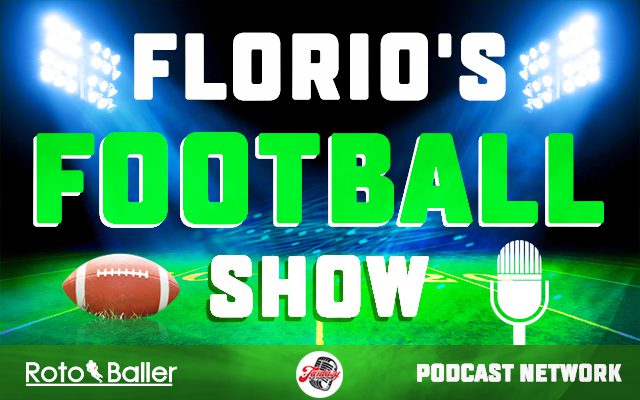Chris O'Reilly looks back at the 2019 NFL Draft to determine which teams "won" with the best value for their draft picks and which teams "lost" based on reaches and potential busts.
If the 2019 NFL Draft took place 10 years ago, with the exact same pool of players to choose from, Kyler Murray would not have been the first overall pick. He would likely not have been the first quarterback taken, and perhaps would not have been drafted in the first round. He is short in stature, and much of his ability at the quarterback position stems from his legs. A decade ago, his skill set was viewed much differently than it is today. Mercifully enough, we've come a long way since the days of NFL coaching staffs trying to force-feed Michael Vick a "pocket-passer mentality" even though it was abundantly clear that his unique skill set was better suited for a different philosophy. NFL coaches no longer try to mold players to fit their system, finally having come around to the idea of adapting their system to fit the players. The verdict on an NFL quarterback is no longer rendered simply by his height, the strength of his arm, or his ability to stand in the pocket while the trenches collapse around him. The position has very much evolved, and for that reason, Kyler Murray now finds himself with the opportunity to be not just a starter, but a star.
Only time will tell if the Arizona Cardinals made the right call when they passed on a plethora of pass rushers to select Murray with the number-one pick. In the present, though, one thing is already for certain: the Cardinals have decided to embrace the changing landscape of the quarterback position, and they deserve some credit for that. We have watched Sean McVay perform a complete overhaul of what was once a pitiful Rams offense that couldn't even get the best out of an elite running back like Todd Gurley. Now it's Kliff Kingsbury's turn to try his hand in Arizona.
As far as 2019 fantasy implications are concerned, the Cardinals can be perceived as a winner now that the dust has settled on the draft. They've landed a dynamic young gunslinger who figures to shake things up and perhaps play a vital role in a bounce-back season out of David Johnson. As for the rest of the league? Again, only time will tell. But here are a handful of other winners and a couple of losers from the 2019 NFL Draft, with a focus specifically on fantasy football for the upcoming season.
Be sure to check all of our fantasy football rankings for 2025:- 2025 fantasy football rankings (redraft)
- Dynasty fantasy football rankings
- 2025 NFL rookie fantasy football rankings
- Best ball fantasy football rankings
- Quarterback fantasy football rankings
- Running back fantasy football rankings
- Wide receiver fantasy football rankings
- Tight end fantasy football rankings
Winner: Washington Redskins
The Redskins fell victim to one of the most uncanny strings of quarterback injuries in recent memory in 2018, but even with Alex Smith at the helm, they were a one-dimensional team offensively. Their game plan on a weekly basis was simple: play stifling defense and run Adrian Peterson into the ground. It worked for the first half of the season, but eventually the wheels came off.
Washington used three of its first four picks on offensive skill players, starting with quarterback Dwayne Haskins at fifteenth overall. Haskins figures to challenge Case Keenum for the starting job in training camp, but regardless of who wins, the Redskins passing offense should be significantly better than it was last season. The Redskins threw just 16 touchdown passes as a team, tied for third-fewest in the NFL.
This was due largely to one of the worst wideout groups in the league, a unit that could be bolstered by third-round pick Terry McLaurin. They further added to their receiving corps in the sixth round, taking Kelvin Harmon. At the very least, these youngsters give the Redskins depth at a position of dire need. At best, one or both of them could surprise in training camp and work their way up an unimpressive depth chart.
The third offensive player the Redskins took was running back Bryce Love. The Stanford product could wind up being one of the sneakier fantasy impact players taken in the middle rounds. Peterson will be in the backfield again, but he's another year older, and Derrius Guice will be returning from a knee injury. It's reasonable to expect Love to be utilized heavily enough to take some of the burden off of those two. In any case, Washington now has a three-pronged rushing attack after spending most of last season relying solely on Peterson.
Loser: Jacksonville Jaguars
The Jaguars lost T.J. Yeldon to free agency, and now they face an even more significant drop-off on their running back depth chart after Leonard Fournette. Fournette's backups are a pair of low-profile acquisitions, Alfred Blue and Benny Cunningham. They waited until the fifth round to address this, taking Ryquell Armstead out of Temple.
Even in a draft without an abundance of game-changing running back talent, the Jaguars cannot feel too comfortable with their backfield heading into the 2019 season. Fournette missed eight games in 2018, and Jacksonville suffered for it on offense. Should he miss time again this season, they are likely staring down a similar fate.
The hope is that Nick Foles rights the ship after a few years of Blake Bortles steering it into storms, and Jacksonville's defense remains solid. It's hard to envision their season being as bad as last year's as an actual NFL team, but from a fantasy standpoint, you would've liked to see them nab up a better insurance policy for Fournette.
Winner: Seattle Seahawks
D.K. Metcalf was projected to be taken in the first round, but Seattle grabbed him with the 64th overall pick. If he comes anywhere close to hitting his ceiling as a rookie, he could be one of the steals of the draft.
The Seahawks were a run-heavy team in 2018, attempting the fewest passes in the league. If that trend continues into next season, there's concern for Metcalf individually as far as volume. Still, one can't help but get excited about where he fits into Seattle's passing scheme based solely on his size. The Seahawks are led by Tyler Lockett and Doug Baldwin, both of whom measure in at under six feet tall. The 6-3, 228-pound Metcalf instantly becomes Russell Wilson's biggest target.
Seattle tied for the fourth-most touchdown passes in the NFL with 35 despite their inclination to run the ball. As long as Wilson remains the Seahawks signal-caller, this passing attack is about quality over quantity. Grabbing Metcalf at the end of the second round absolutely improves an already quality aerial game for Seattle.
Loser: Tampa Bay Buccaneers
The Buccaneers averaged 3.9 yards per rushing attempt in 2018, second-worst in the league. Per Pro Football Focus, their offensive line graded out as the 20th best in the NFL at the end of the regular season. They did not draft a single offensive lineman, and they are evidently content with Peyton Barber and Ronald Jones II in their backfield.
Considering how often the Buccaneers found themselves in shootouts and all-out air raids last season, one would think they might have tried to use the 2019 draft to balance out the offense a bit. They did load up on defensive players, which figures to help them avoid having to continue being so pass-happy going forward if that unit takes a step in the right direction. The Bucs might very well be an improved NFL team, but their draft weekend does nothing to inspire fantasy confidence in their running game.
We'll instead have to hope that a better defense makes their running backs more fantasy-relevant by proxy, putting the clamps down and affording the offensive play-callers the chance to throw a more balanced attack at their opponents.
Winner: Minnesota Vikings
Speaking of bad offensive lines, the Vikings ranked 29th in the league, per Pro Football Focus. They addressed this by drafting three offensive linemen, starting with center Garrett Bradbury in the first round. Bradbury figures to break training camp as a Week 1 starter, bolstering a Vikings offense that admittedly didn't have much work to do coming into the draft.
Minnesota's 4.2 yards per rushing attempt ranked in the bottom half of the league, but much of that can be chalked up to Dalvin Cook's injury troubles. Their pass offense was middle-of-the-pack, but with the triumvirate of Kirk Cousins, Stefon Diggs and Adam Thielen still in the fold, the Vikings maintain the potential for an extremely fantasy-friendly aerial attack in 2019.
Shoring up the offensive line was a must for Minnesota, and slotting a first-round pick into the trenches should go a long way toward fixing one of the few glaring weaknesses this team had last year. Giving Cousins more time to make plays and Cook more room to run allows fantasy owners to have tremendous faith in this offense as we start to organize our 2019 draft boards.
More NFL Draft Coverage
 RADIO
RADIO


























